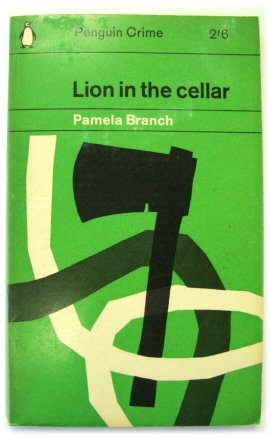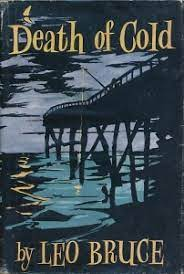This has been quite a month for the blog. March isn't over yet, and there have already been over 120,000 pageviews, by some distance the highest monthly figure since 'Do You Write Under Your Own Name?' began, way back in 2007. I'm very grateful for this level of interest, and it seems clear that Friday's Forgotten Book is a popular feature. Rest assured, I have plenty more obscure titles lined up for discussion!
I'd never heard of Cooper, I must admit, but it turns out that she was a well-regarded writer who lived to a ripe old age, dying in 1994 at the age of 96. She was born in Eccles, grew up in Leeds, studied at Lady Margaret Hall, Oxford, and then went back to Yorkshire to work in her father's engineering firm. Suffice to say that I think she mined a lot of personal experiences for her portrayal of the murder victim in this story, Alberta Mansbridge. We meet Alberta in a prologue, just before a tea party to which she's invited eight people. One of them arrives early - and strangles her.
The investigation is conducted by a very likeable detective, Inspector Corby, and the suspects are well-rounded, especially Alberta's nephew, Anthony. There is a touch of P.D. James about the writing, and my interest was maintained throughout. Corby's investigations take him to Yorkshire, and again one has a sense of Cooper drawing on places she knew well for the background.
The murder plot is not exceptional - I figured out the culprit's identity at a relatively early stage. My guess is that Cooper felt inhibited by a desire to present credible characters, so that although there are eight suspects, some of them are pretty obviously not realistic candidates for the role of murderer. The book doesn't seem to have made much impact, with no paperback edition, and Cooper went back to writing mainstream fiction. But this solitary detective story is significantly better and more enjoyable than many a genre debut and in my opinion deserves better than the total obscurity into which it has fallen.
































